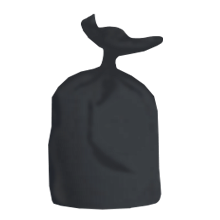Friday 07 October 2022
Agriculture, Countryside and Land Management Services (ACLMS) and the States Archaeologist have received reports that metal detecting has taken place on ecologically and historically sensitive sites on States-owned land. This has led to holes being dug on a Site of Special Significance; a designation given to an area of land which affords it the highest level of protection under our planning law due to its importance. Digging in public spaces can also create trip hazards for the public and could be dangerous for those doing it if they were to find munitions.
Prior to metal detecting, keen metal detectorists should always ask for landowners' consent to avoid damaging property or vegetation, and for their own safety. As land managers, it is our policy that metal detectorists should contact ACLMS and ask that they agree to relevant land use conditions which seek to protect the Island's heritage and environment. Metal detecting is permitted on most of Guernsey's beaches, but not on the East coast due to its historic significance. To find out more, please visit gov.gg/metaldetecting or contact aclms@gov.gg.
Emily Coule, Environment Services Officer, said:
"Metal detecting is a hobby enjoyed by many on the Island and can be a useful tool in discovering our local history when carried out responsibly. However, some sites are particularly sensitive, and it is important not to damage our natural history in the process of searching for treasure. Digging in coastal grasslands can damage rare and threatened floral species that may be found on only a few sites. It can also disturb the seedbank, affecting growth in future years."
Dr Phil de Jersey, States Archaeologist, said:
"It is disappointing to see these holes dug randomly across this archaeologically and environmentally sensitive landscape. Metal-detecting can contribute a great deal to our understanding of the past, when it is done with care and consideration for what might lie beneath the surface. For archaeology to work we need to see the context, or the bigger picture. We can do that with the assistance of metal-detecting, when it's carefully recorded and done in a way that does not risk causing potential damage."













